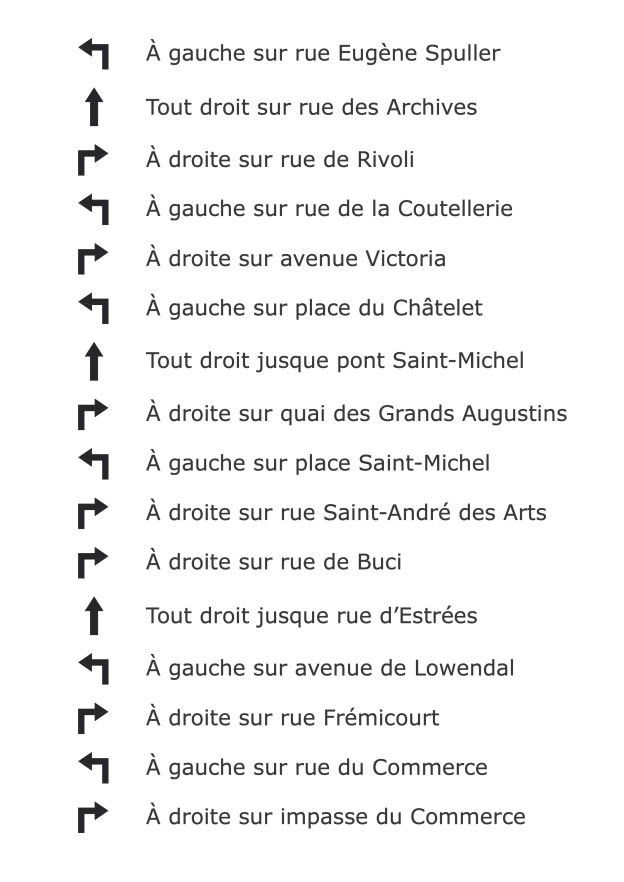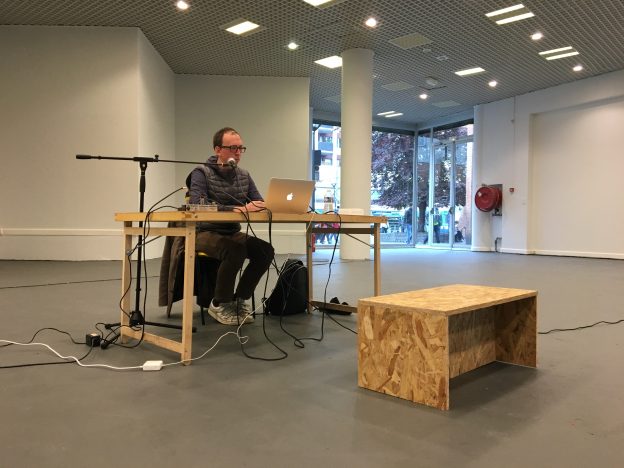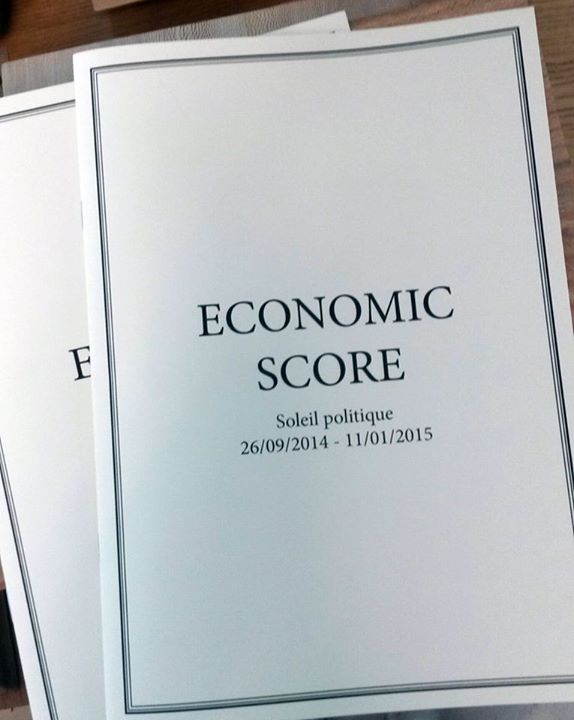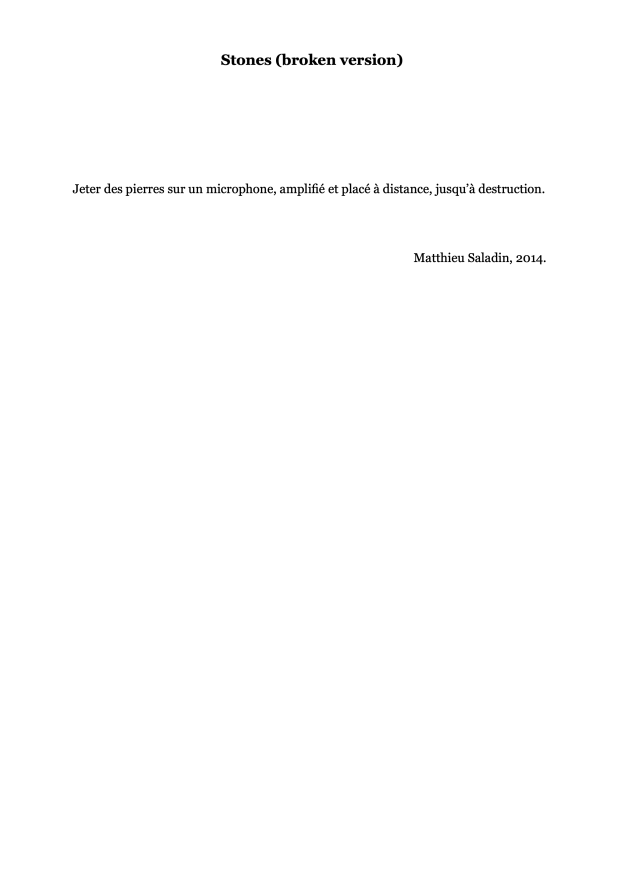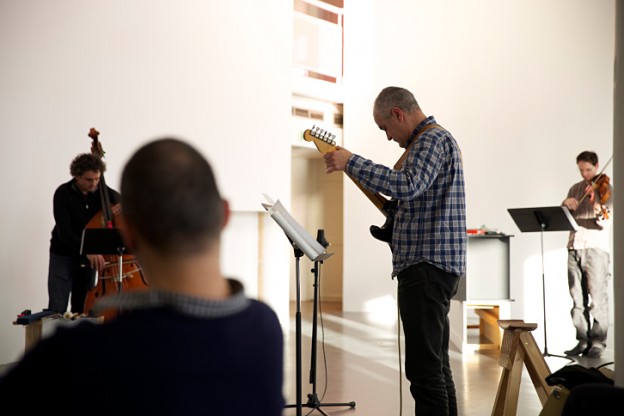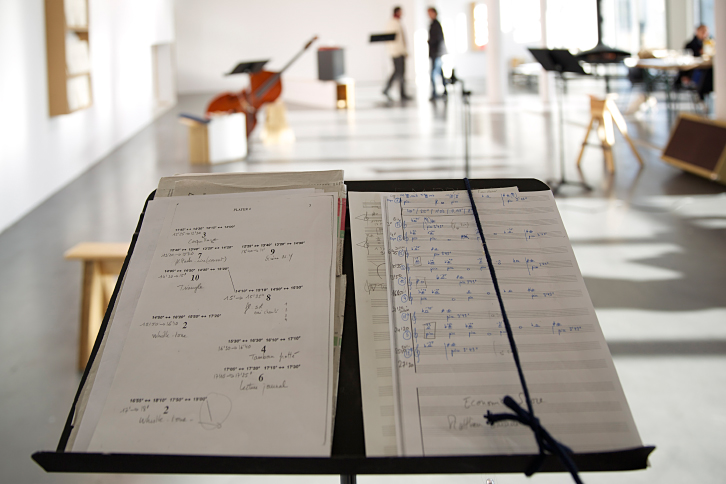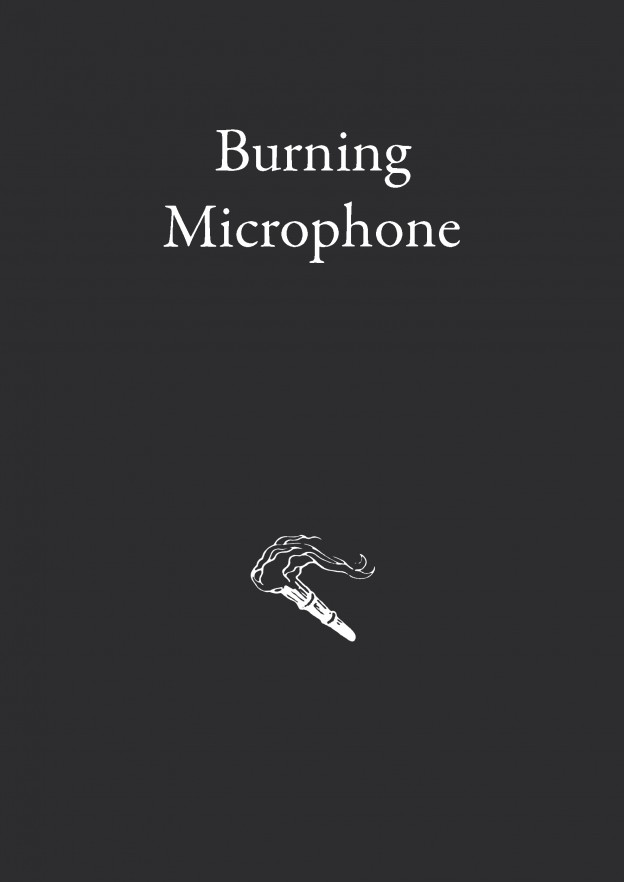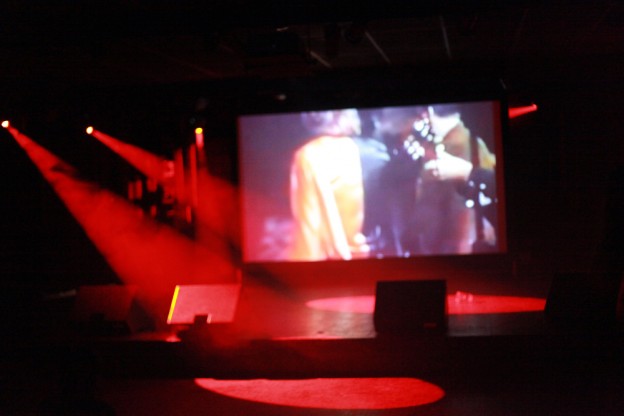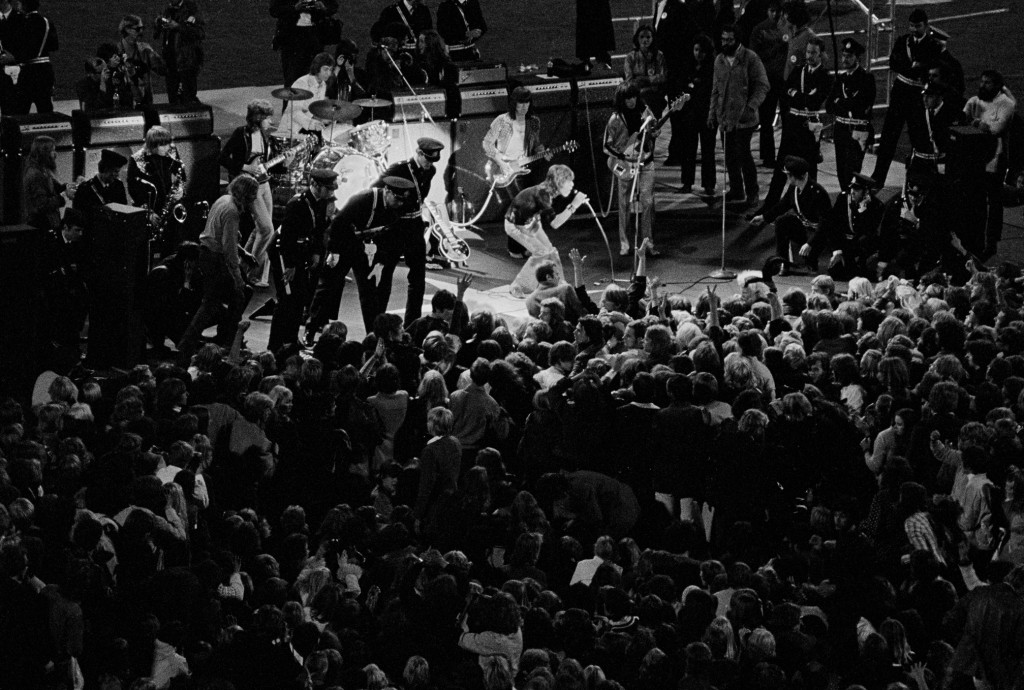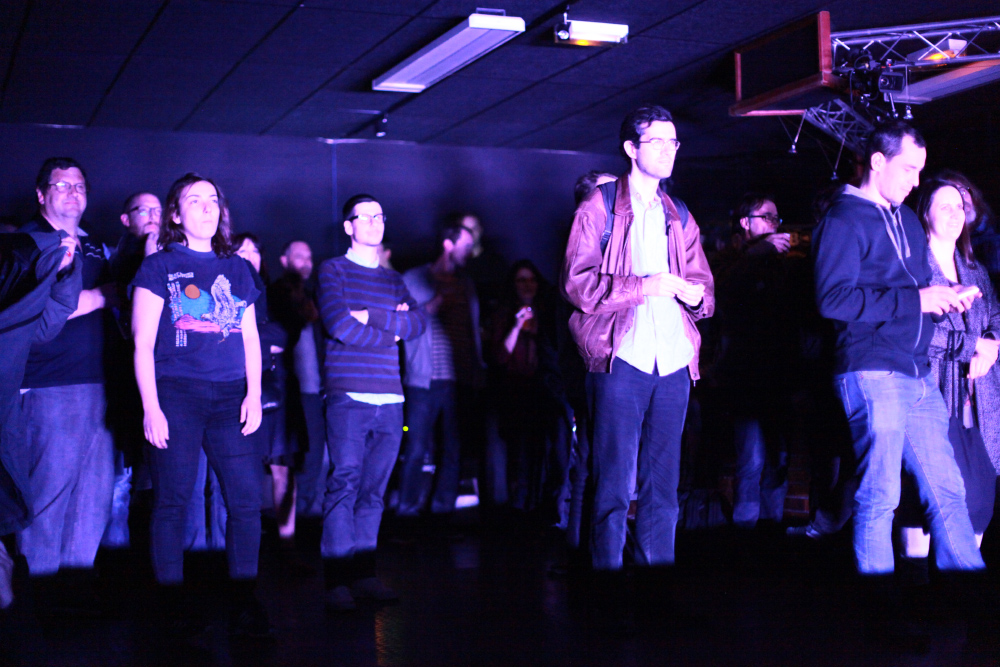2016
Performance (voice, encoding software, amplification), duration: around 40′.
That which is inaudible is here understood to mean that which belongs to the realm of sounds that cannot be heard because they are below or beyond the spectrum audible to the human ear, or masked by other louder sounds emitted simultaneously or almost simultaneously. However the word is also used to refer to that which lies outside the hearing, or rather the understanding of a group, a community, or even a society, in so far as it is socially, culturally and historically constructed, in other words that which cannot be heard because it remains unintelligible to this group, this community or this society, according once again to the impact of thresholds and masking effects. Thus a political meaning is added to the phenomenological sense of the inaudible, without it actually being possible to draw a clear line between the two, especially when one approaches listening as a sense conditioned by the apparatuses used to facilitate it (as indeed all the senses are), or in other words “aided” listening even where no visible device is used.
Performance (voix, logiciel d’encodage, amplification) ; durée environ 40 min.
D’une part, l’inaudible est ici compris au sens de ce qui appartient au royaume des sons ne pouvant être entendus car se situant en-deçà ou au-delà du spectre audible par l’oreille humaine, ou bien masqués par d’autres sons plus forts émis simultanément ou presque. D’autre part, l’inaudible renvoie à ce qui excède l’écoute, sinon l’entendement d’un groupe, d’une communauté, voire d’une société, en tant qu’il est construit socialement, culturellement et historiquement, autrement dit à ce qui ne peut être entendu car demeurant inintelligible pour ce groupe, cette communauté ou cette société, et selon, là aussi, des effets de seuils et de masques. À l’acception phénoménologique de l’inaudible s’adjoint ainsi une acception politique, sans que l’on puisse en réalité tracer une frontière nette entre l’une et l’autre, notamment dès lors que l’on aborde l’écoute en tant que sens pris dans des dispositifs (du reste comme tous les sens), qui l’agencent de manière stratégique, la façonnent techniquement, juridiquement, historiquement et socialement, soit une écoute “appareillée” quand bien même celle-ci ne serait munie d’aucune prothèse visible.
Production Synesthésie – Maintenant.
